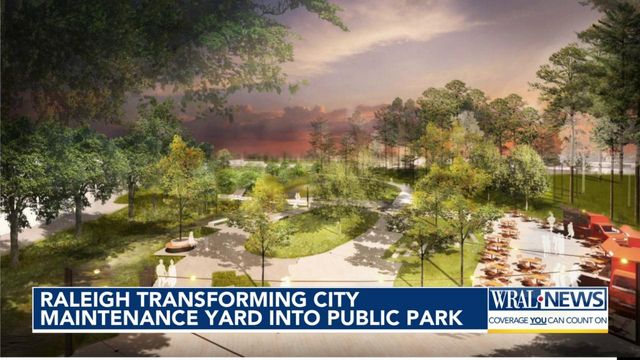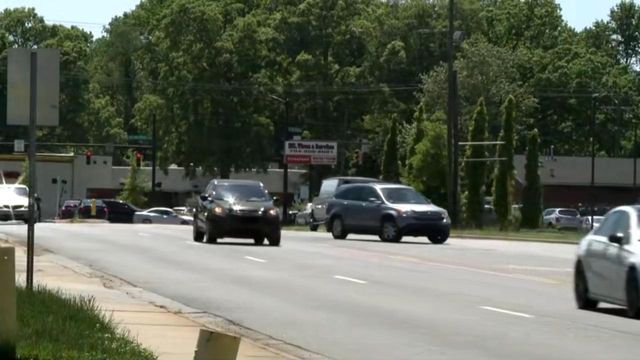Downtown Raleigh's lost waterway to be unearthed after more than 100 years, revived as boardwalk
Did you know a waterway once flowed through downtown Raleigh? Today, much of the Pigeon House Branch is hidden beneath downtown in a century-old stone tunnel that runs beneath Peace Street. Over a hundred years ago, however, the land known as Devereux Meadow was an open field with a waterway – and a new urban park planned for the site could bring that waterway back to life as part of a waterfront park.
For decades, the lots along Capital Boulevard and West Street have been vacant and overgrown – with a few abandoned remnants of the land's previous life as Devereux Meadow baseball stadium. Even now, the site hides remnants of the old 1930s baseball stadium that once heralded legends like Carl "Yaz" Yastrzemski and held a third of the city's population in its bleachers. Closed in the early 70s, decades of overgrowth have left the abandoned baseball stadium's remnants nearly unrecognizable.
The new urban park will be built atop the Devereux Meadow site, covering 14 acres between Peace Street, West Street and Capital Boulevard. The park's plans include a history walkway to highlight the neighborhood's lost past.

The site has served as a city maintenance yard over the decades, with an old stone tunnel, crumbling concrete wall and rusted pipes where the old baseball stadium and waterway used to be.
"It's probably the most polluted site in the City of Raleigh," said Mayor Mary-Ann Baldwin. "We need to clean it up."

The project to create an urban park started over a decade ago. Stephen Bentley, the resources director for Raleigh Parks, Recreation & Cultural Resources, says they want to re-imagine the gateway to downtown.
His team wants to transform the polluted ruins into an oasis with public plazas, wetlands and meadows, and a boardwalk along the Pigeon House Branch waterway.
"All this concrete and pavement you see behind me will go away, and we will re-naturalize the site so we’ll have this little 'pocket of wow' in downtown," he said.
Back in 2021, city leaders unveiled some early images of how they envisioned the park progressing.

Smoky Hollow, the neighborhood surrounding the old baseball stadium and meadow, has always been in downtown's shadow. It was a predominantly African-American neighborhood, with housing for workers in the nearby mills and railroad.
"We’ll use signage and actual design of the site to elevate those stories," he said. "So many people are new to Raleigh. They just drive by this every day and don’t realize the rich cultural history."
Smoky Hollow Park will bring that history back to life in part of the city that's seeing new developments rise up all around it.
"There’s no place to gather that’s a public spot, so this will provide that. It will be a place where people can walk their dogs, where they can see each other, a safe haven," he said.
The city expects to start cleaning all this up and begin construction in 2025, with the park opening in 2027.












